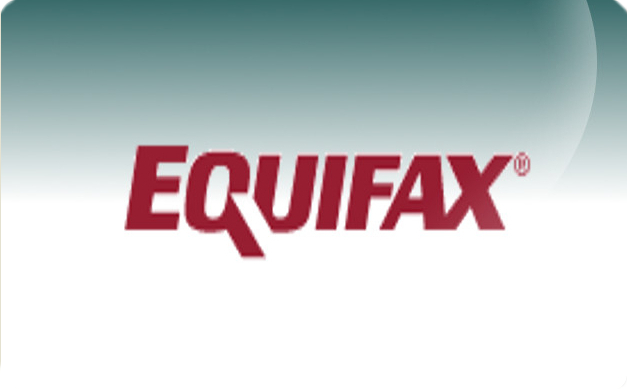Identity theft is a growing problem. Many people across the country have become
victims of this crime. Here are a few basic steps you can follow to avoid becoming
a victim of identity theft yourself:
-
Don't give out personal information. Never reveal your account numbers,
personal account information or social security numbers over the telephone,
via mail or over the Internet, unless you initiated the contact or know whom
you are dealing with.
Store your personal information in a safe place. Shred old credit card and
ATM receipts, old account statements and unused credit card offers before you
discard them. Home shredders are inexpensive and available at most department
and office supply stores.
Protect your PIN numbers and other passwords. Avoid using information that
can be easily obtained. (e.g.: your mother's maiden name, your birth date,
the last four digits of your social security number or your phone number).
Don't leave your receipts behind or throw them in the trash where thieves
can easily retrieve them. Once you no longer need them, shred or tear them up
into tiny pieces.
Carry only identifying information you routinely use. Keep your driver's
license, credit card and related items close at hand. Never leave your handbag,
backpack, laptop, cell phone, etc... laying around where they could be
stolen or tampered with.
Guard your mail against theft. Remove incoming mail promptly, and deposit all
outgoing mail at your post office collection boxes. Don't leave outgoing
mail in your mailbox.
Review copies of your credit report. Order copies of your credit report yearly
from each of the three major credit bureaus to ensure that they are reporting
accurate information.
Watch for signs that your information is being misused. For example, you may
not get certain bills or other mail on time. Follow up with creditors if your
bills don't arrive on time. A missing bill could mean an identity thief has
taken over your account and changed your billing address to cover his
tracks. Other signs include:
-
Receiving credit cards that you didn't apply for;
-
Being denied credit, or being offered less favorable credit terms,
like a high interest rate, for no apparent reason; and
-
Getting calls or letters from debt collectors or businesses about
merchandise or services you didn't buy.
What To Do If Your Personal Information Has Been Compromised
-
Companies or institutions that keep personal information about you have an
obligation to safeguard it. Still, from time to time, the personal information
they hold may accidentally be disclosed or deliberately stolen. If your information
falls into the wrong hands, it may be misused to commit fraud against you.
If you get a notice that your personal information may have been compromised,
taking certain steps quickly can minimize the potential for the theft of your identity.
If the stolen information includes your
financial accounts,
close compromised credit card accounts immediately. Consult with your financial institution
about whether to close bank or brokerage accounts immediately or first change your
passwords and have the institution monitor for possible fraud. Place passwords on any new
accounts that you open. Avoid using your mother's maiden name, your birth date, the last
four digits of your Social Security number (SSN) or your phone number, or a series of
consecutive numbers. The longer the password, the more secure it is.
If the stolen information includes your
Social Security number,
call the toll-free fraud number of any one of the three nationwide consumer reporting
companies listed below and place an
initial fraud alert
on your credit reports. This alert can help stop someone from opening new credit accounts
in your name.
Click any of the following buttons below to visit a nationwide consumer reporting company's website:

Equifax
1-800-525-6285
www.equifax.com
P.O. Box 740241
Atlanta, GA 30374-0241
|

Experian
1-888-397-3742
www.experian.com
P.O. Box 2002
Allen, TX 75013
|

TransUnion
1-800-680-7289
www.transunion.com
Fraud Victim
Assistance Division
P.O. Box 6790
CA 92834-6790
|
An
initial fraud alert
stays on your credit report for 90 days. When you place this alert on your credit
report with one nationwide consumer reporting company, you'll get information about
ordering one free credit report from each of the companies. It's prudent to wait
about a month after your information was stolen before you order your report:
suspicious activity may not show up right away. Once you get your reports, review
them for suspicious activity, like inquiries from companies you didn't contact,
accounts you didn't open, and debts on your accounts that you can't explain.
Check that information - like your SSN, address(es), name or initials,
and employers - is correct.
If the stolen information includes your
driver's license or other government-issued identification,
contact the agencies that issued the documents and follow their procedures to cancel
a document and get a replacement. Ask the agency to "flag" your file to keep anyone
else from getting a license or another identification document in your name.
Continue to read your financial account statements promptly and carefully, and to
monitor your credit reports every few months in the first year of the theft, and
once a year thereafter. For more information on getting your credit reports free once
a year or buying additional reports, read Your Access to Free Credit Reports by
clicking the button below:

If your information has been misused, file a report about your identity theft with
the police, and file a complaint with the Federal Trade Commission
HERE
. Go to the FTC's webpage
Defend: Recover From Identity Theft
for detailed information on other steps to take in the wake of identity theft.
The Federal Trade Commission works for the consumer to prevent fraudulent, deceptive
and unfair business practices in the marketplace and to provide information to help
consumers spot, stop, and avoid them. To file a
complaint
, or to get
free information on consumer issues
, please visit
www.ftc.gov
or call toll-free, 1-877-FTC-HELP (1-877-382-4357); TTY: 1-866-653-4261.



